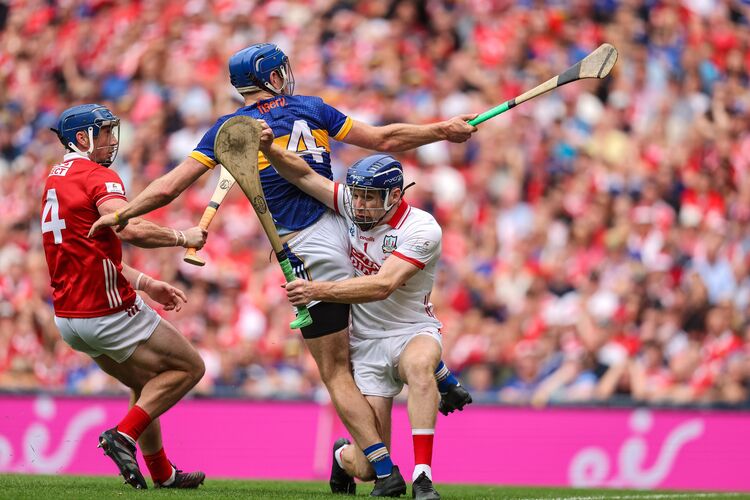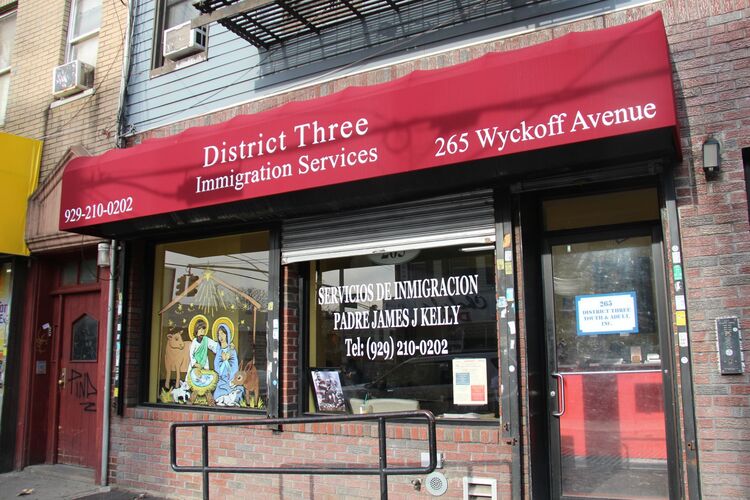From the set of "The Irishman," Frances Scanlon in period hair, make and wardrobe (the lattermost courtesy of three-time Oscar winner Sandy Powell and Christopher Peterson) for a circa-1950s luncheon scene at Villa d'Roma. Scanlon's late father, Edward, was Irish American, a truck driver and a member of Teamsters Local 282.
By Frances Scanlon
The thrill is gone. The romance is dead. All that's left is "The Irishman."
"The Irishman" is actually about everything you think it isn't: domestic politics and its relationship to American foreign policy-making; the intersection of politics - domestic and international - the "American Way"; and the mob-infiltration of Unions, all through a wicked lens, obsessed with self-portraiture and aimed at the cusp of the turn of century past, moving forward. “Selfies” abound, scalding, sloppy and slap-stick in "The Irishman", where every liar knows every lie about to be whistled before its utterance and all pledge unflinching fealty to the liar and the lie.
How then can "The Irishman" be such a harbinger of ubiquitous truth-telling? Simple: the cinematic sorcerer Scorsese has created the
all-time big-screen unromantic seduction. He owns you in less than thirty minutes. You don't need that former Self after the next three hoursand beyond have passed. "The Irishman" is a rear-view mirror embedded in the soul, conceived and executed by the transfiguration of the American landscape of the latter half of the 20th century from fiction to fact.
(A quick aside, please, to take my confession. During the fourth quarter of 2017 I checked into the Marcy Avenue Armory, Williamsburg, for several rehearsals on set of "The Irishman". Ironically it was thereat that Teamsters working the movie would regale me with stories of how the 47th Regiment, N.Y.S. Military National Guard, still extant and housed in that very same Armory, was called up in response to the Draft Riots of July 1863. That mayhem, madness and murder devolved in response to the U.S. Congressional passage in March, 1863, of the "Enrollment Act". The sum and substance of that micro-tonal uncivilized war was the centerpiece of another Scorsese masterpiece, "The Gangs of New York".)
You will be awoke-stirred from the coma you called your Life. "The Irishman" is definitively not recommended for the faint-hearted not because of the violence depicted therein, but because of its unrelenting assault on the "American Dream" and many of its cherished fables. "The Irishman" cannot be taken in small doses. Shoot your load and by all necessary means let the 150 minutes unwind in your freshly emboldened future present “tense.”
Anyone who hazards a hunch that organized crime - Italian style - is nothing more than a pack of peasants will sadly have their suspicion horrifically up-rooted. The dust pile-up on the past of the Cosa Nostra is savagely swept asunder throughout "The Irishman" and in its tidal wave pulsates a repulsing, wretched and repugnant reality: the American Government was beholden in an unseemly and matter-of-fact manner to its influence.
Death of throat cancer in 2002 at the U.S. Medical Center for Federal Prisoners in Springfield, Missouri, might, by comparison, have been a sleigh-ride for John Gotti, once one of the most powerful and feared crime bosses in the United States, when compared to the chilling uncertainty of Jimmy Hoffa's death by 'disappearance'. All-in-all an overarching theme of "The Irishman" is that bad guys eventually die and die really badly.
With Robert De Niro as tour guide from the vantage of his character's (Frank Sheeran, a former truck driver, turned Union executive and loyal model mobster) last prison, a nursing home, "The Irishman" ponders why the homestretch seems so abbreviated when one has travelled incalculable emotional and psychically-overwrought roads to reach his penultimate destination. All moves are never lateral in scaling life's infrastructure while dropping the bottles of daily medicine that contains what he knows will never cure what ails him, i.e. himself. He is not so much as warning or admonishing us lest we embrace a Life of evil but ripping the curtain back on any ministrations that 'the life" might be fruitful.
Indeed "The Irishman" is one to tell that tale inasmuch as he had a “rookie advantage.” Flashback to the killing fields of World War II, Europe and Sheeran's active engagement as an American solider in “catch and kill,” one on one and bury before lunchtime. War never ends on the battlefield. Never. "The Irishman" offers up abundant proof that the ravages of war live brutally on in the lives of the men who fought and survived.
The film's collective “silenced” female throw a counter-punch so powerful that it is 'the' sound tract of "The Irishman," notwithstanding the very carefully curated music that is itself a paraphrased character. Women bear witness to the taut, syncopated terror throughout "The Irishman" by and in silence that quietly shrieks and soars octaves above the cacophony played out on the ground.
Above all else, "The Irishman" is an inflection point in global story-telling: scrapple the fable, invent the truth and the paradoxes of reality will emerge: brawling, broiling and bickering with that ultimate wrestler: Destiny.







